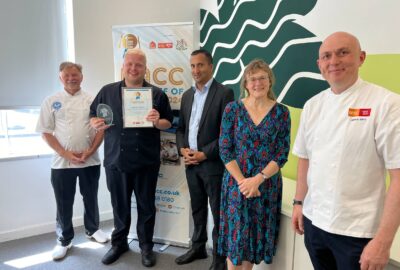In some kitchens only 40% of energy consumed is used for the preparation and storage of food.1
Much of the wasted energy is dispersed into the kitchen as heat . From reducing energy waste to food miles, caterers can play a huge role in leading environmental change by considering kitchen practice and implementing thoughtful procurement to support eco-friendly menus and equipment.
Aramark at University of Westminster are exemplars of green kitchen practice – winning the coveted Green Kitchen Standard Champion Award from Food for Life two years running for their outstanding sustainable initiatives. They have installed LED lights across all their kitchens, complete regular monitoring of energy, water and waste with reduction targets set and communicate to students on how they can support the green initiatives, such as by using the correct recycling bins for waste and bringing keep cups onto site.
Dain Son, CSR Ambassador at the University of Westminster says:
“We have worked on the Green Kitchen Standard for the last three years and it has put sustainability at the heart of what we do in our kitchens at the University of Westminster. We recognize the impact that our operation has, therefore we worked closely with the university to make sure our commitments align with the university’s strong commitments to the United Nations Sustainable Development Goals and building a sustainable future. We are proud of what we’ve achieved so far and look forward to creating bigger positive impact.”
I Carbon Trust ‘Food Preparation and Catering’
TOP TIPS
• Calculate the lifecycle cost of equipment when making new equipment purchases, and build a business case for replacing inefficient equipment
• Recruit a team of sustainability ambassadors to promote green initiatives at a site level
• Implement switch off policies for equipment that is not in use, and ensure teams are trained to use equipment efficiently
• Put in tap controls such as water shut off valves for spray washers, flow restrictors and aerators
• Monitor, reduce, reuse and recycle waste where possible


